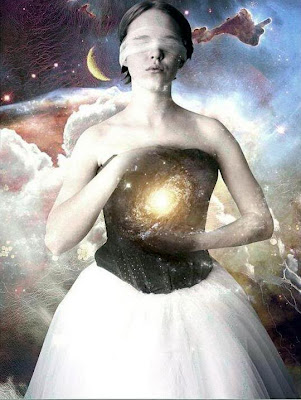Pagan Blog Project - Week 13 - G#1 – Gnostics
What we know about the ancient Gnostics is that we
don’t know much. We know that the people who modern people might call Gnostic
never called themselves Gnostic. The word Gnostic might have even been used as
a slang. (Kind of like how the people who modern people call Pagan never ever
called themselves Pagan.)
Plotinus, who is considered by many modern people to
be a premier writer of Gnostic source materials, often wrote about the Gnostics
as those goofy radicals down the street. "It is NOT as the Gnostics say..." (Kind of like how modern Pagans often
write about “those fluff bunnies”, even though two thousand years ago we might
all be seen as fluff bunnies.)
In regards to the Gnostics, we don’t know more than we know. But what I’ve learned about the Gnostics
is that they’ve always been
misunderstood. We don’t know who they are now and no one knew who they were
then. Which translates to me that anything can be Gnostic, nothing is Gnostic,
nothing is not-Gnostic. (Which works out really great for me.)
We know that the Sethians in Egypt were considered
to be the first Gnostics, about 200 years or so before Christianity. These
people were a sect of radical Jews who were probably inspired by Mediterranean
(Greek) mystery traditions. And these Mediterranean mystery traditions were
probably inspired by the Ancient Egyptian mystery traditions, which were
inspired by God Only Knows. But whoever the Gnostics were, they went on to
inspire Christianity, the Kabbalah, Masons, The Golden Dawn, Wiccans, modern Pagans,
comic book artists, rock songs, books, movies, and a continuing cycle of
inspired texts and prophets (Dick, Hesse, Moore, Smashing Pumpkins, ELO, etc.)
What I love about the early Gnostics was that they
just wrote stuff all the time, and some of it is crazy. I get the impression
that if there is was aspect about their current Gnostic myth that they didn’t
like, they just wrote their own. So this means as a modern person reading this
stuff it seems confusing and contradictory, but contradiction only need to
exist in religion if one is looking at religion from a literal point of view. But
when looking at religion as something that is organic, changeable, and
evolving, the Gnostic myths make perfect sense, especially from a Universalist
point of view. We’re all on a path
towards God, we know that each path is different. We’re all just wandering
around on a crooked path and at the center is God.
So who were the Gnostics and what did they do? We
don’t really know. But what I like to think is that two thousand years ago, Gnostics,
Jews, Pagans, Christians, atheists, agnostics and whoever else got together in
comfy backrooms every once in a while. I’d like to think that they were all
friends. That they sat and breathed together, wrote stupid stories about
talking snakes and laughing gods, chanted, raised energy, talked about God,
shared wine and bread, laughed, told jokes, had ecstatic moments, and afterword,
in the words of my Bishop, they sat around in joy and said “how cool was that?!”


No comments:
Post a Comment